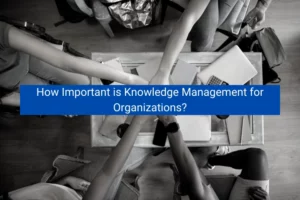Small-business leadership abilities

Remote teams are becoming the norm, whether you have a few folks who work from home or a large virtual staff. Finding competent remote employees, as well as effectively managing your team from afar, can be difficult. Employees and leaders must be aware of their responsibilities, motivated to work hard, and able to communicate with one another. It's also important to recognize that certain industries are better suited to remote work.
Related: Work from Office vs. Work from Home: Differences?
An insurance company, for example, may have Customer Service Representatives, Claims Specialists, Auditors, Underwriters, and other employees working from anywhere in the world, whereas pharmaceutical sales representatives may require greater face-to-face engagement with clients.
Here are five strategies for improving your remote leadership skills and making team management less stressful:
1. Schedule regular meetings
If you have contractors or employees, holding weekly or biweekly meetings allows your remote team to share updates and ask questions.
It's a terrific approach to get to know your coworkers and encourage open communication. You'll have a better understanding of how your leadership development plan is progressing and will be able to make adjustments that will benefit your firm.
Are you concerned about long-distance phone charges? Use a free video-conferencing tool like Zoom, which makes it simple for everyone to connect. For team communication, we utilize DISCORD.
Related: Benefits of Video Conferencing in the Workplace
2. Don't forget your company culture
You can have a great workforce culture even if you don't have a large office full of staff. Employees should be aware of your company's vision, mission statement, and goals. Allow them to participate as much as possible in the development of your business brand, and value their skills and abilities.
You might even observe that some of your staff have leadership skills, and if they're interested, you can assist them in pursuing leadership training.
Organize a corporate gathering if your staff live close enough to interact in person. You'll get to know your employees better and give everyone a sense of inclusion and business culture, whether it's a BBQ, bowling, or Christmas party.
Related: 7 Common Mistakes That Good Leadership Don’t Make
3. Set clear expectations
Employees who work in an office have a clear understanding of work hours, norms, and procedures, whereas those who work remotely may not. The fact that your remote staff may be in various time zones adds to the issue.
Consider your business needs and what you can realistically expect from staff as part of your leadership development plan. Consider the following scenario:
- You must respond to all emails within 24 hours.
- Employees are not required to answer emails or work on weekends.
- Weekly hours must be filed for payroll by Thursday evening.
4. Use a time-tracking tool
For a small business owner, you must prioritize increasing productivity. Employees will be more accountable with a time-tracking application, and you will be able to evaluate their performance.
Not only that but using a time-tracking solution will make payroll a breeze. You'll get up-to-date information about how much time each employee spends on projects.
Employees benefit from time-tracking tools because they eliminate the effort of manually tracking time and allow them to focus on one activity at a time rather than becoming sidetracked. When working on client projects, we utilize Toggl to keep track of our time.
Related: How does an Applicant Tracking System (ATS) work?
5. Be organized yet flexible
Although you have some expectations of your employees and you need them to complete the deadlines, you should also be thankful for how they like to work.
Some folks require more inquiries than others. Some employees like to collaborate with their coworkers, while others prefer to work alone. Some contractors may benefit from leadership training, while others are unwilling to expand their responsibilities.
Have simple ways for your remote employees to contact you, like as texting or online chat, in addition to weekly or biweekly meetings. Encourage communication among your staff and make it simple for them to contact you with inquiries or concerns.
This is a learning experience for you as well! Consider it on-the-job leadership development. Managing a remote team might be difficult initially, and there will always be obstacles to overcome. Change anything that isn't working. Pay attention to what your staff has to say and use it to improve.
For Human Resource, Payroll and many more HR Services, visit our website https://lingueeglobal.com/



